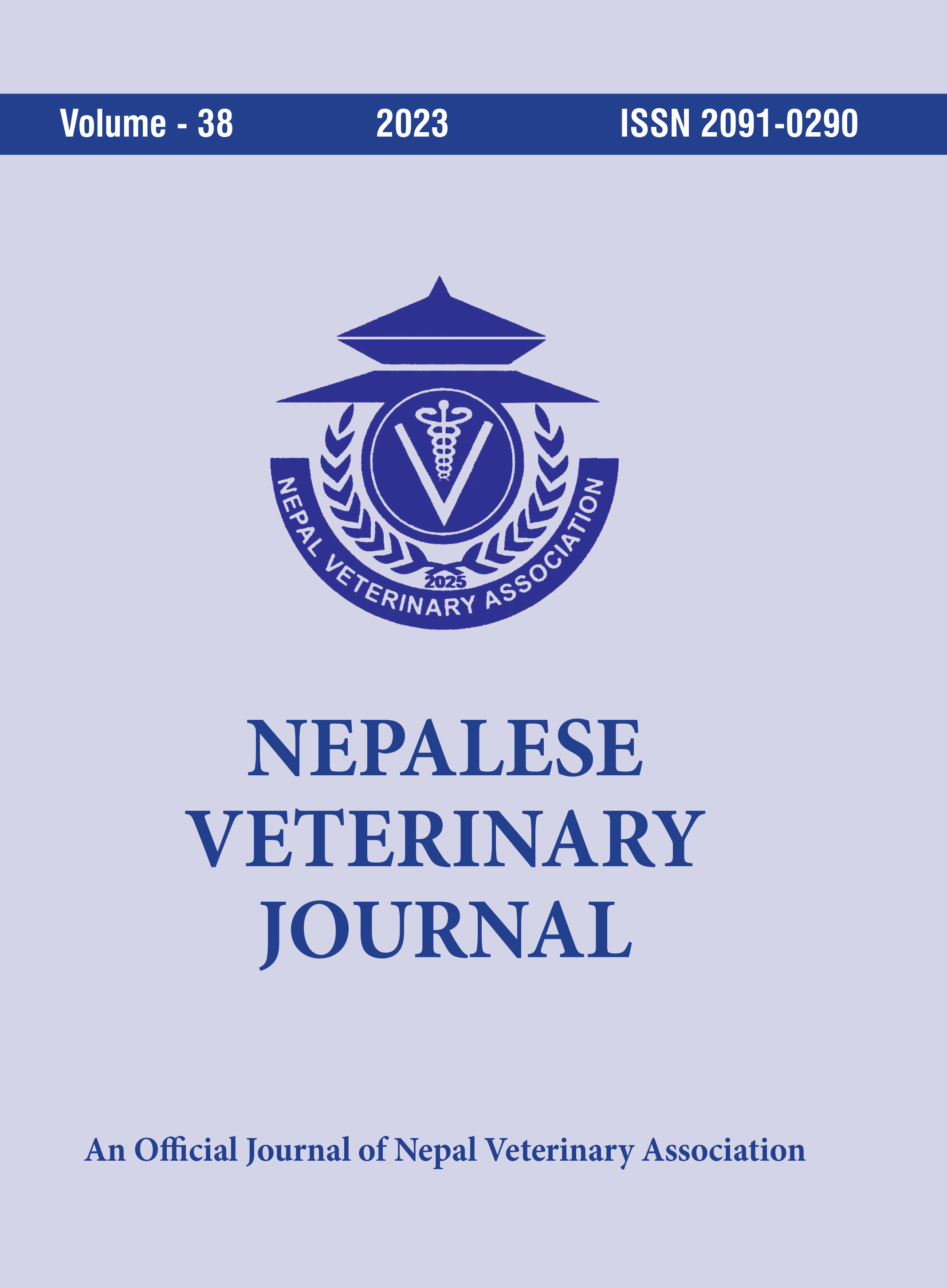Observation of Rearing System of Small Ruminants in Jumla District
DOI:
https://doi.org/10.3126/nvj.v38i1.55815Keywords:
Rearing system, small ruminant (sheep and goat), transhumane system, JumlaAbstract
Small ruminant production is one of the main sources of meat in Jumla district and contributes in the food security of the nation. A study was carried out at Guthichaur and surrounding areas of Jumla district to observe the rearing system and management practices of small ruminant. Twenty farmers from Guthichaur, Jumla with a flock size of 100 to 350 animals were interviewed about the rearing system, management practices, and health problems. Sheep was a major livestock commodity and most of the farmers raised sheep and goat together in transhumance system (migratory sheep flock). Baruwal, Bhyanglung and their crosses in case of sheep while Sinhal in case of goat were found to be common in the study areas. From the beginning of summer season (Falgun-Jestha), the animals were grazed in the nearby field during the day and kept in shed at night. In winter, where it snows, they were kept in shed and fed hay and stored corn due to limited grazing area. At night, some farmers kept their sheep, goats in shed while some farmers kept their sheep outside in field. From third week of Jestha to fourth week of Bhadra, farmers moved their flock to high hills called Patan to graze on locally available herbs. Farmers performed open castration on their animals by themselves and besides deworming the debilitated animals, they generally didn’t deworm or vaccinate their animals. Some of the major health problems observed in the animals were plant poisoning, parasitic infestations, scabies and lice infestation, pneumonia, abortion, uterine prolapse, vaginal prolapsed, and inbreeding. Farmers kept the same male for seed material for many years and were found to be unfazed by the consequence of inbreeding.
Downloads
Downloads
Published
How to Cite
Issue
Section
License
© Nepal Veterinary Association




